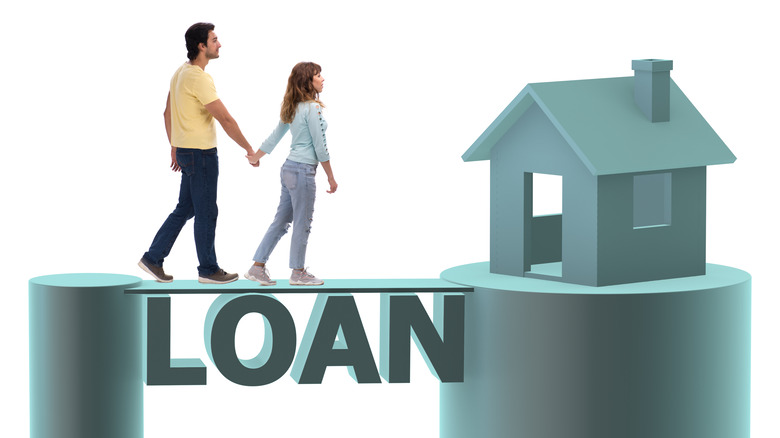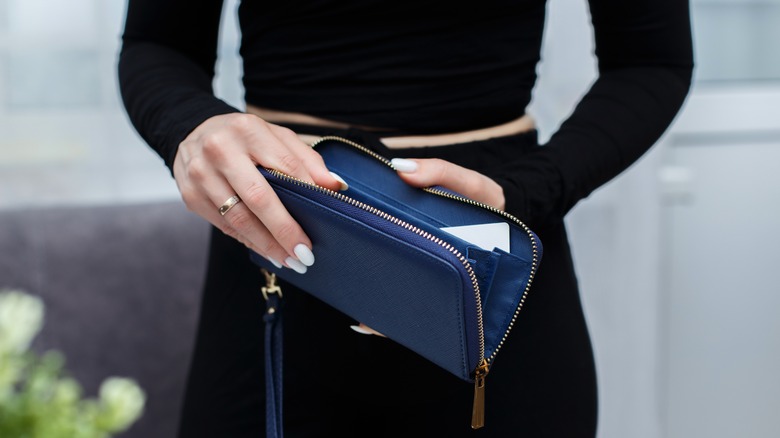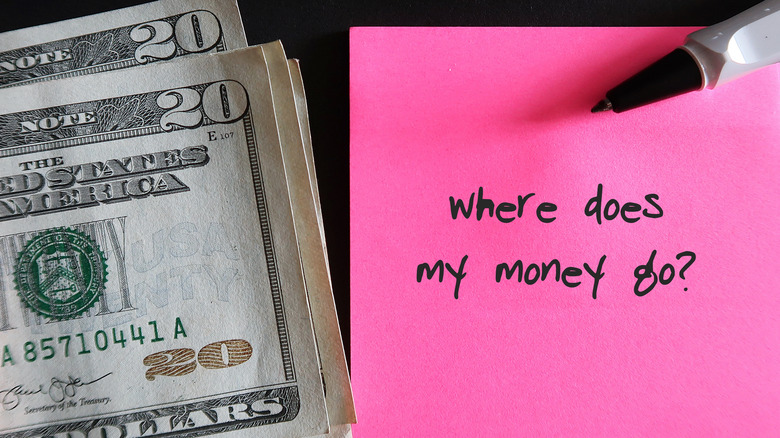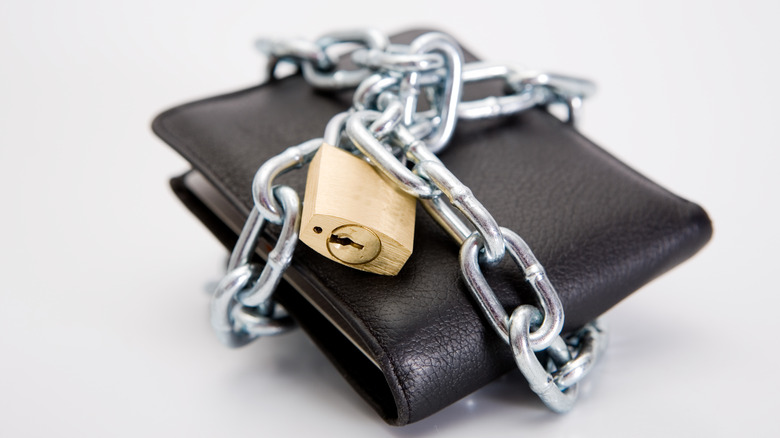How To Budget And Save For A Bigger Down Payment On Your Home
Skyrocketing real estate prices and the need for a large down payment may have set your dreams of buying a home on the back burner in 2021. This year may not be any different as real estate prices are expected to continue to rise, per Zillow. It may be a good time to save for a larger down payment so that you're in a stronger position to buy when housing prices come down to earth. When it comes to buying a house, your income, your debt-to-income ratio, and your down payment are the three most determining factors. Here are some ways you can budget and save for a larger down payment.
If budgeting makes you feel about the same as dieting, you're not alone, according to CNBC, and there is no "one-size-fits-all" solution. What's important is to find something that will work for you so you can take steps to reach your short- and long-term financial goals. Here are some steps to get you started. First, figure out how much you'll need for a down payment. Next, track your spending in writing. Once you're doing that, you'll be able to see where you could set limits on non-essential spending. After that, you're ready to create a spending plan that helps you save.
How much money will you need for a down payment?
Before you figure out how much you'll need to save for a down payment, you have to know how much you can borrow for a house. You can use a mortgage calculator for an approximate idea, such as the one offered by NerdWallet, or speak with a bank or mortgage lender. Once you know how much you can borrow, you can make a savings goal for a down payment. A larger down payment is considered less risky to a lender and will get you a better interest rate and lower monthly mortgage payments. It also strengthens your offer because it assures the seller that you're on solid financial ground and your financing is likely to go through, writes NerdWallet.
However, you don't have to make a 20% down payment to buy a home. In 2021, the median down payment for all U.S. homebuyers was 12%, as reported by the National Association of Realtors (pg. 85). Speak with several lenders to find out which mortgage loans are right for your situation. Only one type of loan may apply, but if there are multiple options, ask lenders to provide several quotes so you can see which type is the best deal overall.
Where did my paycheck go?
Once you have an idea as to how much you need to save for a down payment, you can figure out where that savings will come from. You're not alone if your paycheck disappears each month. As of January 2022, 64% of consumers were living paycheck to paycheck, per CNBC. Start by tracking your expenses using a budgeting and savings app, a spreadsheet, or just by writing them down. Look at your account statements and group your expenses into categories, suggests NerdWallet. These categories could separate fixed expenses, variable expenses, and discretionary spending.
There are several free apps, and some with a fee, that can help you track your expenses, allocate money towards your bills, help you save for that larger downpayment, and even invest. Check out these recommendations from NerdWallet, Investopedia, and Forbes to find the one that works best for you. Some apps are better for people whose incomes may fluctuate from month to month. Many of the ones that have a fee also offer 30-day free trials.
Put the brakes on non-essential spending
As you track your expenses, you'll have more control over your money and can start to find ways to save money towards a down payment. Look for savings in all of your spending categories, even your fixed expenses. For example, you might lower your car- and renter's insurance by shopping around for a better deal, per Forbes. See if you can set up payment plans with your utility providers for large bills, or with medical providers for large medical bills, per NerdWallet. This may prevent you from charging the full balance to a credit card and paying interest as you pay down the bill each month.
You have the most opportunity to save by reducing your discretionary spending. Those may be the expenses for things you enjoy but aren't really using, like several streaming services, subscriptions, memberships, and unplanned purchases for things that catch your eye. If giving up something for an extended period of time is too hard to contemplate, try a monthly spending cleanse, per CNBC, and give up that purchase for a month. Every time you would normally do that activity, move the money you would have spent into your down payment savings account. Keeping a picture of your goal can help you stay focused, per CNBC. It may be a photo of a house you'd like to buy once you save for a larger down payment.



